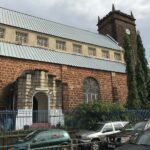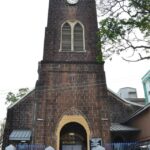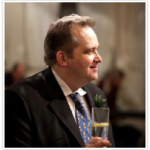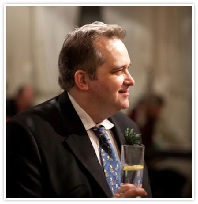What drew you to training and conducting choirs?
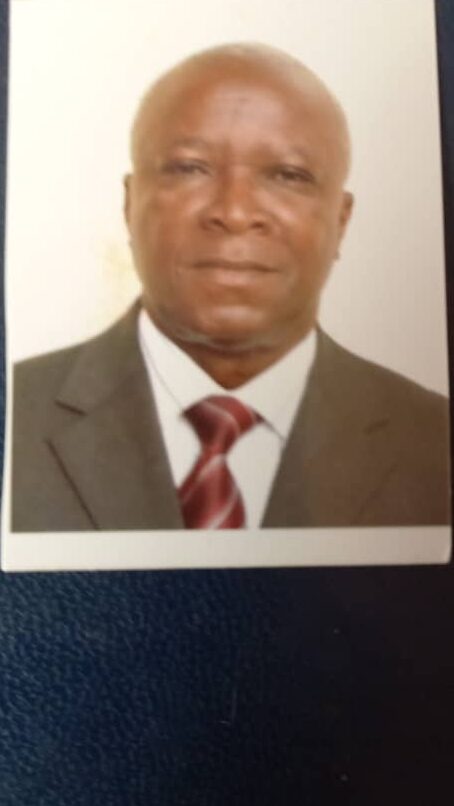
I have a great passion for singing, particularly classical choral music. it started when I was about four years old when my older brothers were inducted as choristers in the St. George’s Cathedral choir in the mid-1950s.
They loved singing and I used to imitate them and repeat what they were singing. This led to our next-door neighbour Mr. Jack Bowen-Wright who was the organist of the Cathedral developing an interest in me. He started taking his son Alfred and me to Evensong and at times his Saturday organ practices. Unfortunately, he passed away at a very young age and the family left the neighbourhood.
When I joined the Cathedral choir in 1965, my love and passion for choral music developed greatly as I had the opportunity to be trained by Pa Rollings (the Choirmaster and Precentor) and by the Organist Mr. Bunting Bowen-Wright who introduced me to singing duets and airs from the works of great masters.
My dear brother and best friend Lloyd Fowler also played a great part in my development in music. He taught me the basic rudiments of music since they were taught music in school unlike me.
He was also an organ student and whilst he was playing the harmonium in their home, I would sing and keep time. I also developed a keen interest in the other three parts in the Choir and would learn their parts in hymns and anthems even as a young boy. We then started making our own little choir when the adults were not around and I would be the Choir Director and Lloyd would be the Organist. This continued for a while until, in the late 60s we started a small group to serenade at Christmas to raise pocket money for ourselves. This consisted of my elder brother and some other boys from Holy Trinity Church. We were six in number and we started singing in parts though not perfectly, but in proper harmony. I was the director of the group though the youngest but one (the late Dr. Douglas Carew of Blessed Memory being the youngest). We received accolades from the homes we visited …. and a lot of money.
Forming the Melody Choral Group
Some “big men” in society including the Prime Minister at that time (Siaka Stevens) encouraged us to form a choral group since we could sing better than some choirs. This we did after some years and formed the Melody Choral Group. I also joined the Cathedral Youth Fellowship and helped in the development of the Youth Fellowship Choir which had choristers from the Cathedral and other churches.
The United Kingdom and Italy
I had to travel out of Sierra Leone in the early-70s to further my education in the United Kingdom and Italy. I became a regular visitor at Little Saint Mary’s in Cambridge and also Saint Paul’s and Temple Church in London while in the United Kingdom and spent a lot of my pocket money in concert halls and opera houses in Italy. I also had the opportunity to join a choral group for practice and I learned a lot from this. On my return to Freetown in the mid-70s, I went back to the Choir as a very good tenor singer influenced by the great tenors in the concert halls and opera houses of Italy.
I also wanted to pass on the skills and experience I had acquired and asked the Preceptor for permission to train the boys on Saturdays. The organist at that time Mr. V. D. George and Lloyd Fowler volunteered to join in, and we had very successful Saturday sessions which still take place, whenever we have special performances by the Choir.
I was also mentored by the Late Loggie Wright in the Freetown Choral Society and the Caecilians. I admired his way of teaching and conducting. I also formed a Men’s Voices Group “The Georgians” which became very well-known in Freetown. We were ten in number and I was the director.
Becoming Choirmaster
I was appointed Choirmaster in 1989 after the death of Mr., A.E. Jones-Browne. It was a very challenging task, but with the support of the Old Men who were like fathers to me and the boys, I was able to succeed.
I introduced conducting to the Choir though with some opposition from the “Die-hards” of the Cathedral who thought it was unnecessary in the Cathedral as the Choir could do without a conductor. After a few years, they accepted that it had really improved the quality of the Choir. I also give pieces of advice to other church choirs to improve their singing and provide them with music scores also.

